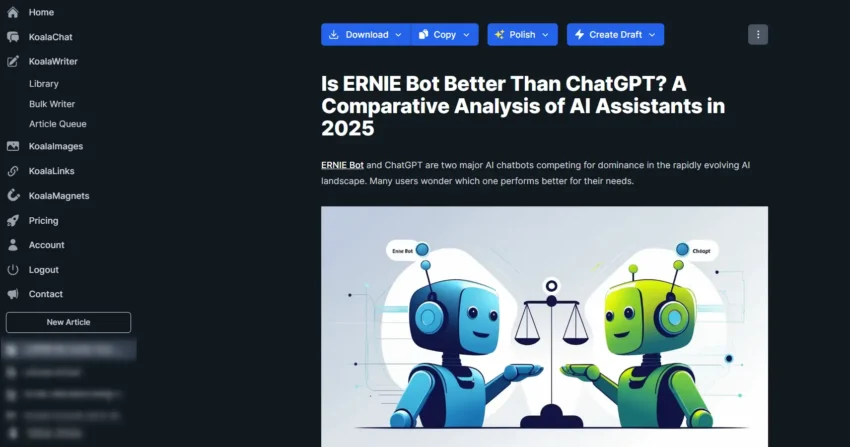The Artificial Intelligence (AI) community has been abuzz with discussions about Artificial General Intelligence (AGI), especially in the wake of recent developments and the increasing capabilities of AI systems like ChatGPT.
This year alone has seen AI chatbots from various search engines, as well as the creation of images, audio, and video from AI technologies.
Sam Altman’s cryptic announcement
Sam Altman, the ex-CEO of OpenAI, stirred the AI community with a post on Reddit claiming that OpenAI had achieved AGI internally.
This claim, however, was later retracted as he stated he was just “memeing”.
This announcement came shortly after OpenAI introduced a significant update to ChatGPT, enhancing its ability to interact with users by processing audio and visual information.
Let’s back up a little,
What’s AGI?
Apologies for the confusion.
AGI, short for Artificial General Intelligence, is a term that refers to a type of AI that can understand, learn, and apply knowledge in a variety of contexts, much like a human’s cognitive abilities.
AGI can theoretically perform any intellectual task that a human being can, and it is a goal of some AI research, though it remains a largely theoretical concept as of now because no AGI systems have been developed yet.
It is distinguished from narrow or weak AI, which is designed to perform specific tasks within a limited scope
The role of OpenAI in AGI pursuit
OpenAI, a leading AI research organization co-founded by Elon Musk, has continuously aimed to push the boundaries of AI technology and responsibly pave the path towards AGI.
Some have speculated that Sam’s ouster was a result of a disagreement between prioritizing customer-facing products such as Chatgpt and focusing solely on AGI research, with Sam preferring the former.
Now, if harnessed correctly, AGI has the potential to revolutionize the world in unpredictable ways.
Altman himself has spoken about AGI’s potential to boost humanity’s progress by contributing to the global economy and aiding scientific discoveries.
However, he also acknowledges the risks associated with AGI, including misuse, accidents, and social disruption.
Implications of AGI achievement
With AGI becoming almost a reality, the implications are vast and warrant careful exploration of potential risks and benefits associated with such a powerful technology.
AGI’s achievement would mark a pivotal moment in technological history. The idea of AGI refers to AI systems that can match or surpass human intelligence.
The very notion has sparked intense speculation, especially in forums like r/singularity. Here, the discussions revolve around the technological singularity – a point where AI surpasses human intelligence and becomes uncontrollable and irreversible.
Socio-economic impact
Achieving AGI (Artificial General Intelligence) would have profound implications on the socio-economic landscape around the world.
As a highly advanced form of AI, AGI has the potential to transform industries, economies, and societies.
Some key areas of impact could include:
- Employment: AGI systems might automate many tasks, requiring us to reassess our workforce and make significant shifts in education and job retraining.
- Wealth distribution: A potential increase in productivity and efficiency brought by AGI could contribute to greater wealth generation. However, there is a need to ensure that the benefits of AGI are fairly distributed and do not exacerbate existing inequalities.
- Innovation: With AGI’s ability to understand and use cause-and-effect relationships, we could witness groundbreaking advancements in various fields, from healthcare and scientific research to art and entertainment.
AGI origins and technologies
Early beginnings
The quest to build Artificial General Intelligence (AGI) is not a recent phenomenon. It traces back to the early days of computing, ignited by the visionary work of Alan Turing in 1950.
Turing’s paper, ‘Computing Machinery and Intelligence,’ served as a cornerstone for the burgeoning field of AI, sowing the seeds for AGI research.
From optimism to realism
The mid-1950s marked a significant era in AI research, with pioneers like Herbert A. Simon expressing confidence in the imminent achievement of AGI.
This optimism influenced popular culture, as seen in the creation of HAL 9000 in the film 2001: A Space Odyssey.
However, the complexity of developing AGI soon became apparent, leading to a shift in focus towards more achievable, applied AI goals in the 1970s.
The Rise of Applied AI
The 1990s and early 2000s witnessed AI’s commercial success, pivoting towards specific applications like speech recognition and recommendation systems.
This period was marked by significant advancements in ‘applied AI,’ steering the field away from the pursuit of AGI towards more practical, verifiable results.
AGI’s resurgence
Entering the 21st century, the term ‘artificial general intelligence’ re-emerged, thanks to the efforts of researchers like Shane Legg and Ben Goertzel.
The focus shifted back to creating machines capable of general intelligence, embracing concepts like open-ended learning – a paradigm that allows AI to continuously learn and innovate, much like humans.
The current landscape and debates
Today, complete forms of AGI remain largely speculative.
The field has seen fascinating developments, like OpenAI’s GPT-4, which sparked discussions about its potential as an early form of AGI.
Microsoft Research’s study on GPT-4 has led to debates on whether it could be considered a step towards AGI, underscoring the ongoing evolution of the field.
Potential validity and future
As of now, there are only rumors circulating about AGI being achieved internally. Before we make any conclusions, it is crucial to investigate the validity of these claims and the findings behind them.
Keeping the following factors in mind will help maintain a balanced perspective:
- AGI development is a rapidly evolving field, with multiple organizations and governments actively engaged in research and innovation.
- Ensuring that findings are transparent, peer-reviewed, and replicated is vital to maintaining the credibility of AGI research. By carefully examining the validity of AGI claims, we will better understand its current state and future prospects.
- If AGI is indeed achieved, collaboration among governments, businesses, researchers, and civil society will be necessary to establish responsible and ethical frameworks guiding AGI’s use.
Wrapping up
As we stand at the cusp of possibly the most significant technological advancement in human history, the narrative around AGI continues to evolve.
Whether or not AGI has been achieved remains a subject of debate and conjecture. However, the impact of such a development would be profound, reshaping our understanding of intelligence, technology, and even humanity itself.
Thus, the journey towards AGI is not just a technical challenge but a collective societal endeavor that requires careful consideration, ethical guidelines, and global collaboration.












